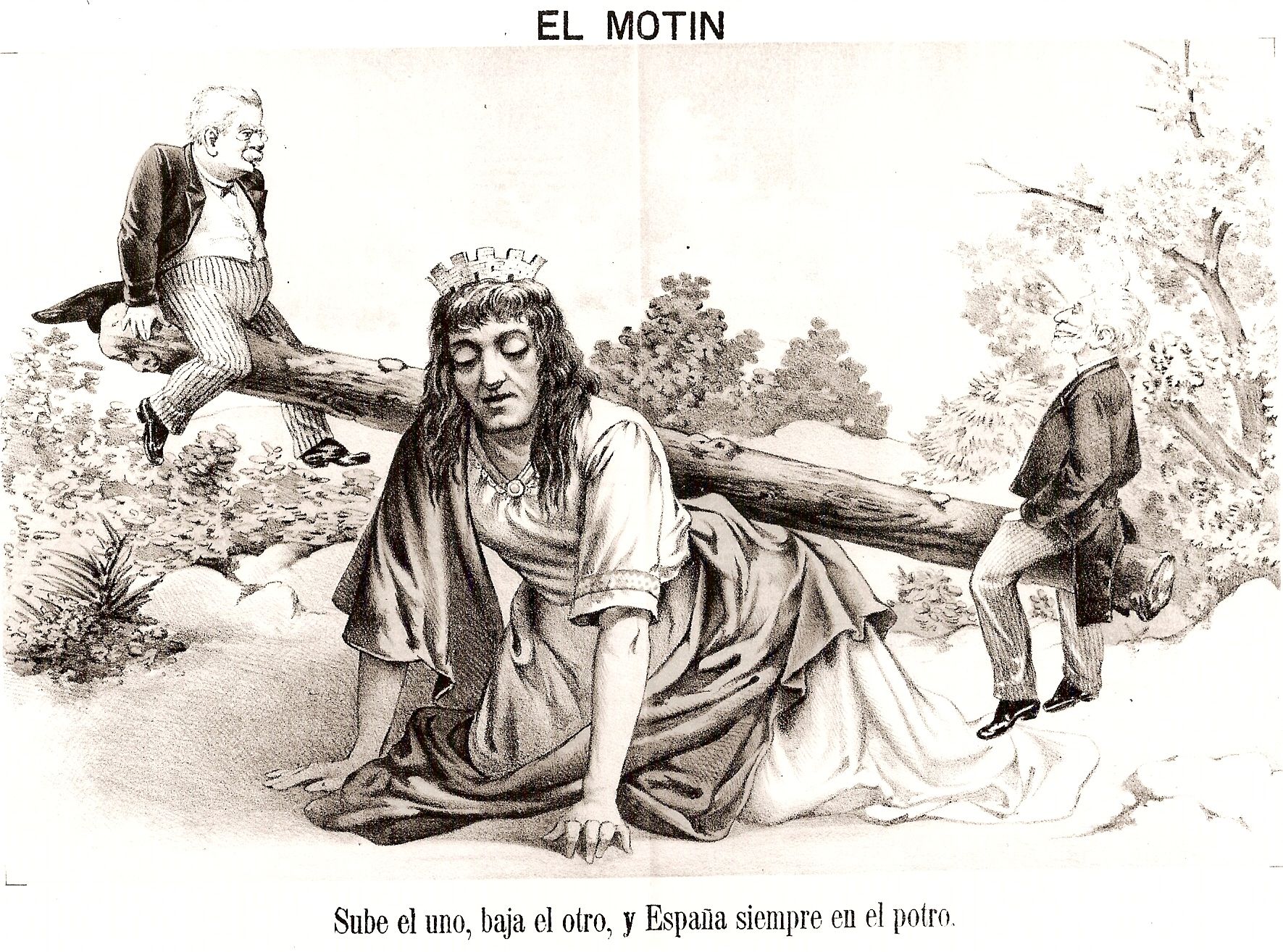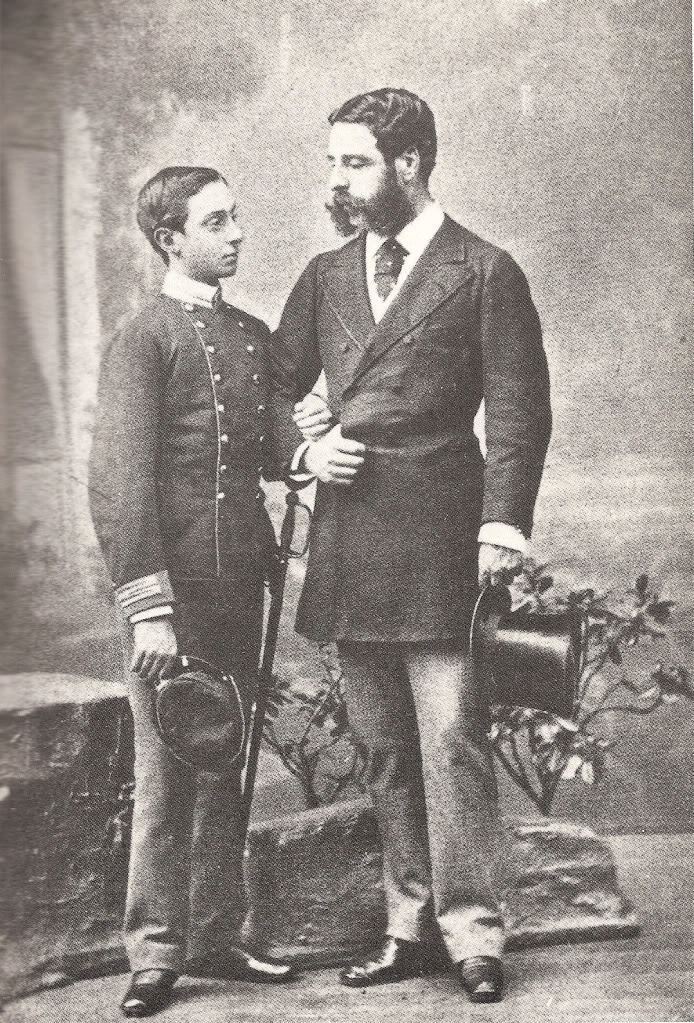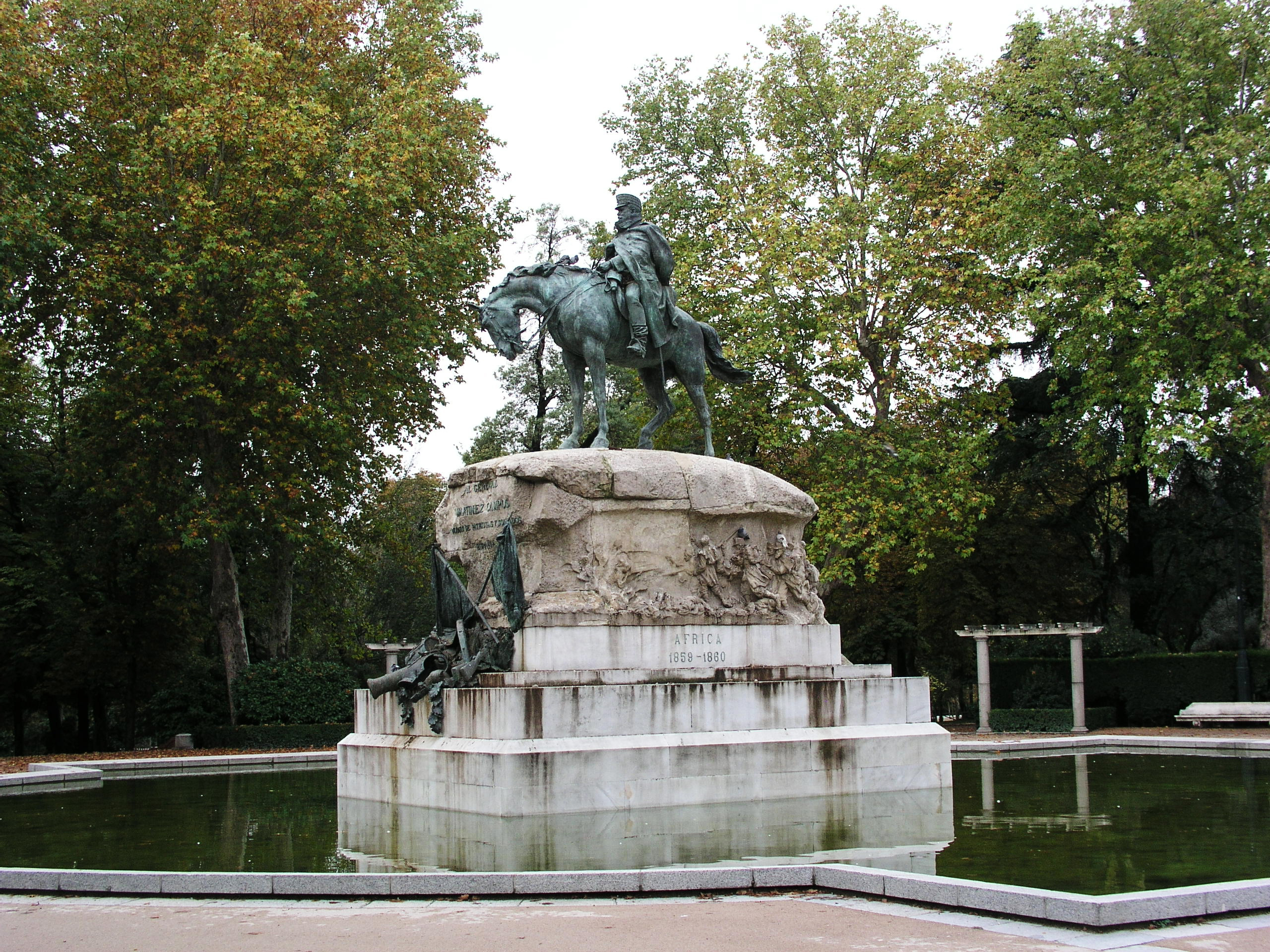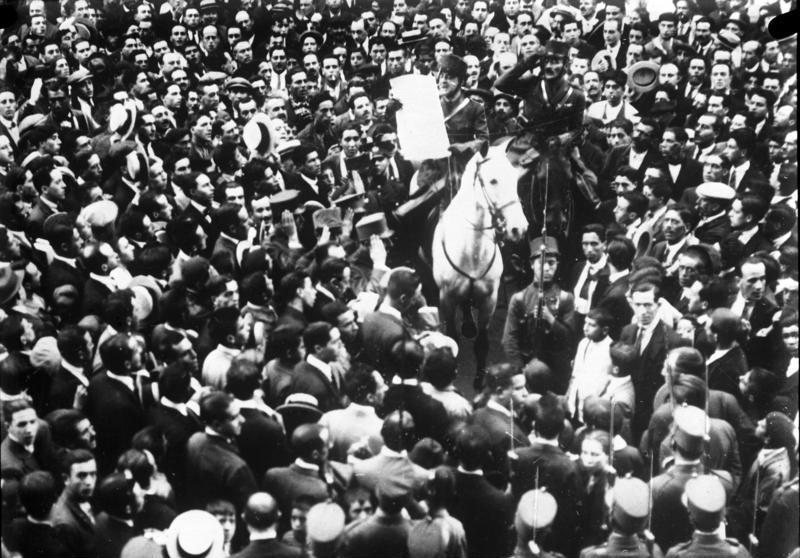|
Pact Of El Pardo
The Pact of El Pardo was an informal agreement which supposedly took place on 24 November, 1885, in the face of King Alfonso XII's imminent death. It established a system of party alternation that lasted until General Primo de Rivera's '' coup'' in 1923. The pact was signed in the Royal Palace of El Pardo. Historical context The pact was signed between Antonio Cánovas del Castillo, leader of the Conservative Party, and Práxedes Mateo Sagasta, leader of the Liberal Party. Both political parties dominated Spanish politics during the Restoration period. The aim of the pact was to provide stability to the regime, which was thought to be in jeopardy due to the proximity of the King's death. The pact established a system of alternance for the two major political parties, effectively ensuring that both would "take turns" governing the country within a democratic framework. This was achieved through the use of ''caciques'', powerful individuals who greatly influenced the vote around ... [...More Info...] [...Related Items...] OR: [Wikipedia] [Google] [Baidu] |
Alfonso XII Of Spain
Alfonso XII (Alfonso Francisco de Asís Fernando Pío Juan María de la Concepción Gregorio Pelayo; 28 November 185725 November 1885), also known as El Pacificador or the Peacemaker, was King of Spain from 29 December 1874 to his death in 1885. After a revolution that deposed his mother Isabella II from the throne in 1868, Alfonso studied in Austria and France. His mother abdicated in his favour in 1870, and he returned to Spain as king in 1874 following a military coup against the First Republic. Alfonso died aged 27 in 1885, and was succeeded by his son, Alfonso XIII, who was born the following year. He is the most recent monarch of Spain to have died while on the throne. Political background, early life and paternity Alfonso was born in Madrid as the eldest son of Queen Isabella II on 28 November 1857. His official father, Isabella's husband Francisco de Asís, has been generally viewed as effeminate, impotent or homosexual, leading writers to question his biological pater ... [...More Info...] [...Related Items...] OR: [Wikipedia] [Google] [Baidu] |
Restoration (Spain)
The Restoration ( es, link=no, Restauración), or Bourbon Restoration (Spanish: ''Restauración borbónica''), is the name given to the period that began on 29 December 1874—after a coup d'état by General Arsenio Martínez Campos ended the First Spanish Republic and restored the monarchy under Alfonso XII—and ended on 14 April 1931 with the proclamation of the Second Spanish Republic. After almost a century of political instability and many civil wars, the aim of the Restoration was to create a new political system, which ensured stability by the practice of '' turnismo''. This was the deliberate rotation of the Liberal and Conservative parties in the government, often achieved through electoral fraud. Opposition to the system came from Republicans, Socialists, Anarchists, Basque and Catalan nationalists, and Carlists. Alfonso XII and the Regency of Maria Christina (1874–1898) The '' pronunciamiento'' by Martínez Campos established Alfonso XII as king, marking the e ... [...More Info...] [...Related Items...] OR: [Wikipedia] [Google] [Baidu] |
Political History Of Spain
Politics (from , ) is the set of activities that are associated with making decisions in groups, or other forms of power relations among individuals, such as the distribution of resources or status. The branch of social science that studies politics and government is referred to as political science. It may be used positively in the context of a "political solution" which is compromising and nonviolent, or descriptively as "the art or science of government", but also often carries a negative connotation.. The concept has been defined in various ways, and different approaches have fundamentally differing views on whether it should be used extensively or limitedly, empirically or normatively, and on whether conflict or co-operation is more essential to it. A variety of methods are deployed in politics, which include promoting one's own political views among people, negotiation with other political subjects, making laws, and exercising internal and external force, including wa ... [...More Info...] [...Related Items...] OR: [Wikipedia] [Google] [Baidu] |
1880s In Spain
Year 188 (CLXXXVIII) was a leap year starting on Monday of the Julian calendar. At the time, it was known in the Roman Empire as the Year of the Consulship of Fuscianus and Silanus (or, less frequently, year 941 ''Ab urbe condita''). The denomination 188 for this year has been used since the early medieval period, when the Anno Domini calendar era became the prevalent method in Europe for naming years. Events By place Roman Empire * Publius Helvius Pertinax becomes pro-consul of Africa from 188 to 189. Japan * Queen Himiko (or Shingi Waō) begins her reign in Japan (until 248). Births * April 4 – Caracalla (or Antoninus), Roman emperor (d. 217) * Lu Ji (or Gongji), Chinese official and politician (d. 219) * Sun Shao, Chinese general of the Eastern Wu state (d. 241) Deaths * March 17 – Julian, pope and patriarch of Alexandria * Fa Zhen (or Gaoqing), Chinese scholar (b. AD 100) * Lucius Antistius Burrus, Roman politician (executed) * Ma Xiang ... [...More Info...] [...Related Items...] OR: [Wikipedia] [Google] [Baidu] |
Arsenio Martínez Campos
Arsenio Martínez-Campos y Antón, born Martínez y Campos (14 December 1831, in Segovia, Spain – 23 September 1900, in Zarauz, Spain), was a Spanish officer who rose against the First Spanish Republic in a military revolution in 1874 and restored Spain's Bourbon dynasty. Later, he became Captain-General of Cuba. Martínez Campos took part in wars in Africa, Mexico and Cuba and in the Third Carlist War. Education and early military career In 1860, he was sent to Africa to take part in the Tetuán War in Morocco, and he distinguished himself in 16 actions, obtaining the Cross of San Fernando and the rank of lieutenant colonel. He also took part in the Mexican 1861 campaign against urban rebels under General Juan Prim in a joint expedition along with France and Britain. Ten Years' War After the Revolution of 1868, Martínez Campos requested a posting to Cuba, where he fought against the rebels in 1869 in the Ten Years' War, gaining the rank of brigadier general. Success in t ... [...More Info...] [...Related Items...] OR: [Wikipedia] [Google] [Baidu] |
Emilio Castelar
Emilio Castelar y Ripoll (7 September 183225 May 1899) was a Spanish republican politician, and a president of the First Spanish Republic. Castelar was born in Cádiz. He was an eloquent orator and a writer. Appointed as Head of State in 1873 in the midst of the Third Carlist War and having been given full powers by the Parliament, he ruled by rule by decree, decree. He left office after Coup d'état of Pavía, a coup led by General Pavía the following year. He wrote a history of the ''Republican Movement in Europe'' among other works of political interest. Early life At the age of seven he lost his father, who had taken an active part in the progressive agitations during the reign of Ferdinand VII, and had spent several years as an exile in England. He attended a grammar school at Sax. In 1848 he began to study law in Madrid, but soon elected to compete for admission to the School of Philosophy and Letters, where he earned a doctorate in 1853. He was an obscure republican stu ... [...More Info...] [...Related Items...] OR: [Wikipedia] [Google] [Baidu] |
Possibilist Democratic Party
The Democratic Party ( es, Partido Demócrata, PD) was a Spanish political party created in 1879 by former Emilio Castelar as a split from the Federal Democratic Republican Party to contest the Spanish general election held in the same year. In 1884 it was renamed as the Possibilist Democratic Party ( es, Partido Demócrata Posibilista, PDP). In 1893 most of it merged into the Liberal Party. See also *Liberalism and radicalism in Spain This article gives an overview of liberalism and radicalism in Spain. It is limited to liberal and radical parties with substantial support, mainly proved by having been represented in parliament. The sign ⇒ denotes another party in that sch ... References Defunct political parties in Spain Defunct liberal political parties Political parties established in 1879 Political parties disestablished in 1893 Radical parties Republican parties in Spain 1879 establishments in Spain 1893 disestablishments in Spain {{Spain-party-stub ... [...More Info...] [...Related Items...] OR: [Wikipedia] [Google] [Baidu] |
Neocatólicos
The ''neocatólicos'' ("''neo–Catholics''", shorted to ''neos'') was a counter-revolutionary political tradition, faction or movement in late 19th-century Spain, emerged during the reign of Isabella II, akin to "Isabelline traditionalism" and " authoritarian conservatism", fusing anti-liberalism with the defence of the queen's dynastic legitimacy. Part of the 19th century Spanish counter-revolutionary though, and described as the "extreme right of the Moderate Party that had in Donoso Cortés their father and inspirator", the political struggle of the ''neos'', already coalesced by 1860, sided them with Carlism against the liberal advances and republicanism. After the 1868 Glorious Revolution (and overthrow of Isabella II) they tended to join the ranks of Carlism. Later in the 19th century, during the Restoration, politicians with a neo-Catholic background would enjoy, unlike old Carlists, some presence in the Conservative Conservatism is a cultural, social, an ... [...More Info...] [...Related Items...] OR: [Wikipedia] [Google] [Baidu] |
Liberal Party (Spain, 1880)
The Liberal Party ( es, Partido Liberal), originally called Liberal Fusionist Party ( es, Partido Liberal-Fusionista, PLF) until 1885, was a Spanish political party created in 1880 by Práxedes Mateo Sagasta. With the Conservative Party of Antonio Cánovas del Castillo, it formed a two-party system of alternating governments, the ''turno'', which characterised the Spanish Restoration during the late 19th century and the early 20th century. It combined republicans who did not accept the new law reflected in the Constitution of 1876 as well as monarchists, members of the Constitutional Party of general Francisco Serrano, of the Partido Radical of Manuel Ruiz Zorrilla, the “posibilistas” of Emilio Castelar and other military groupings. Its political programme included achieving universal male suffrage, which was achieved in 1890; liberty of religious association; and the separation of powers. Although it could be classified as a dynastic party, its membership included at the ... [...More Info...] [...Related Items...] OR: [Wikipedia] [Google] [Baidu] |
General Primo De Rivera
Miguel Primo de Rivera y Orbaneja, 2nd Marquess of Estella (8 January 1870 – 16 March 1930), was a dictator, aristocrat, and military officer who served as Prime Minister of Spain from 1923 to 1930 during Spain's Restoration (Spain), Restoration era. He deeply believed that it was the politicians who had ruined Spain and that by governing without them, he could restore the nation. His slogan was "Country, Religion, Monarchy." On the death of his uncle in 1921 he became Marquess of Estella. With the support of Alfonso XIII of Spain, King Alfonso XIII and the army, Primo de Rivera led a Mussolini-inspired military coup on 13 September 1923.Television documentary from CC&C Ideacom Production,"Apocalypse Never-Ending War 1918-1926", part 2, aired on DR K on 22 October 2018 He was appointed Prime Minister by the King. He promised to eliminate corruption and to regenerate Spain. In order to do this he suspended the constitution, established martial law, imposed a strict system of ... [...More Info...] [...Related Items...] OR: [Wikipedia] [Google] [Baidu] |
Práxedes Mateo Sagasta
Práxedes Mariano Mateo Sagasta y Escolar (21 July 1825 – 5 January 1903) was a Spanish civil engineer and politician who served as Prime Minister on eight occasions between 1870 and 1902—always in charge of the Liberal Party—as part of the '' turno pacifico'', alternating with the Conservative leader Antonio Cánovas. He was known as an excellent orator. Biography Mateo-Sagasta was born on 21 July 1825 at Torrecilla en Cameros, province of Logroño, Spain. As a member of the Progressive Party while a student at the Civil Engineering School of Madrid in 1848, Sagasta was the only one in the school who refused to sign a letter supporting Queen Isabel II. After his studies, he took an active role in government. Sagasta served in the Spanish Cortes between 1854–1857 and 1858–1863. In 1866 he went into exile in France after a failed coup. After the Spanish Revolution of 1868, he returned to Spain to take part in the newly-created provisional government. He served as P ... [...More Info...] [...Related Items...] OR: [Wikipedia] [Google] [Baidu] |
Conservative Party (Spain)
The Liberal Conservative Party ( es, Partido Liberal-Conservador, PLC), also known more simply as the Conservative Party ( es, Partido Conservador, PC), was a Spanish political party founded in 1876 by Antonio Cánovas del Castillo. History Foundation The Conservative tag was for the type of ideas which, when thinking of questions of state, then dominated in Spain. The political formation of Spain by Antonio Cánovas del Castillo at the request of Alfonso XII of Spain, who assumed the crown after the failure of the First Spanish Republic. The Conservative Party brought together a varied group of people, from the supporters of Isabel II of Spain before the Republic to the members of other groups he had formed. Its existence was linked to Cánovas himself and on his death in 1897 it was kept going by Francisco Silvela. In 1885, the party signed the Pact of El Pardo with the Liberal Party of Sagasta, in which the parties agreed to alternate (''turno'') in power after the death of ... [...More Info...] [...Related Items...] OR: [Wikipedia] [Google] [Baidu] |






